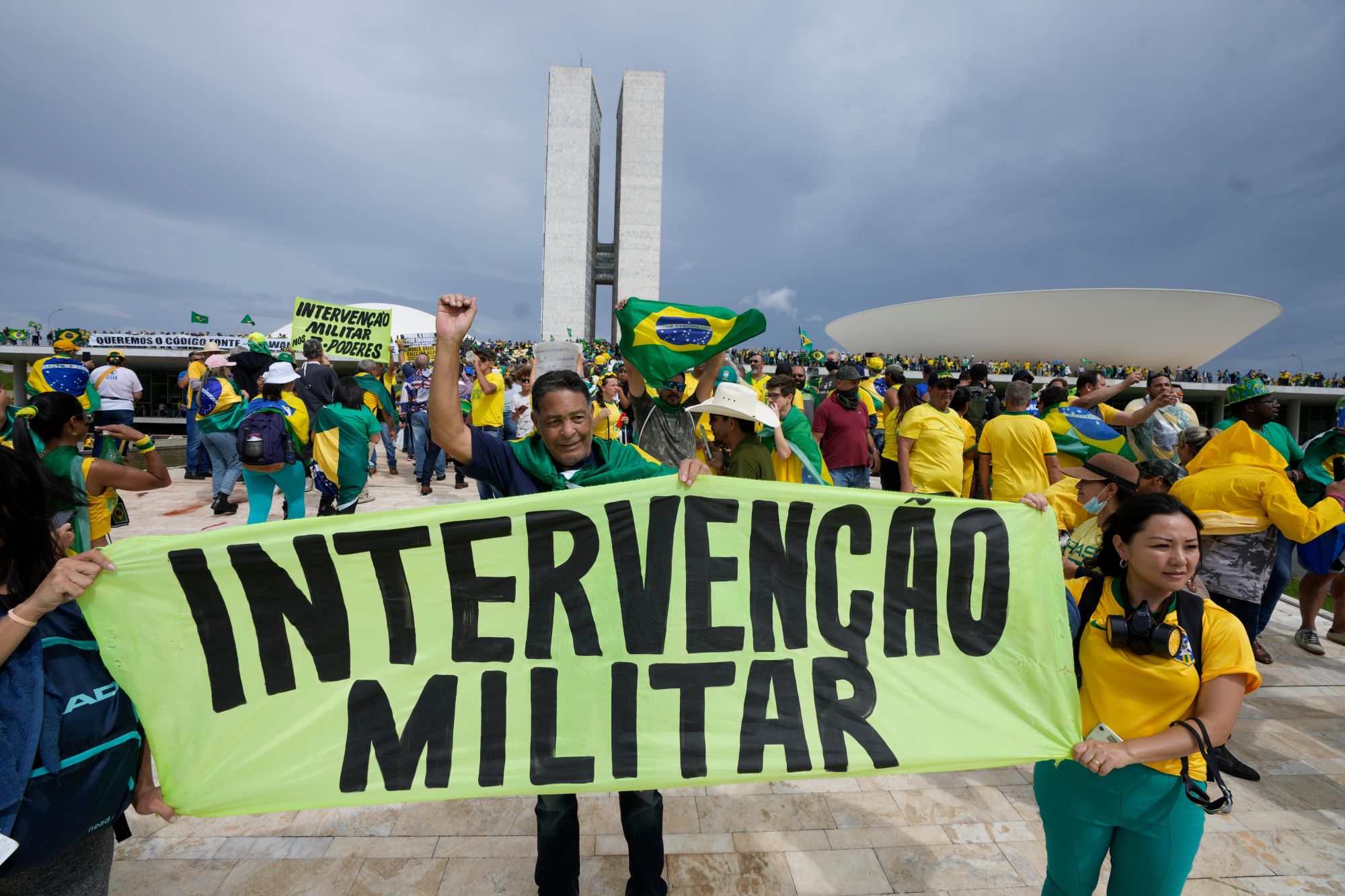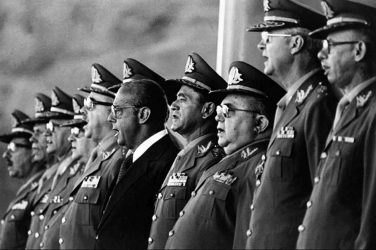President Jair Bolsonaro summoned his ministers and staff to a meeting at his official residence on July 5, 2022. They discussed at length ways to prevent a defeat in the upcoming October elections. Everyone in the room seemed to agree that democracy should not stand in their way.
When in office, the former president spoke several times against the integrity of the 2022 elections, ripping off Donald Trump’s infamous #StopTheSteal campaign. To the Bolsonaro administration, elections had always been a nuisance, but no one knew how far they would go to remain in office.
Recently, footage of the meeting was disclosed as part of a court order issued by Supreme Court justice Alexandre de Moraes. The Federal Police arrested three of Bolsonaro’s closest aides and carried out search warrants against former ministers and high-ranking military officers.
They are being investigated for allegedly hatching a military coup as a response to Lula da Silva’s victory in the vote. Amid searches, the police found a draft decree through which Bolsonaro would institute a state of siege in the country, hand over power to the generals, and put Justice Moraes behind bars.
Bolsonarism hates Moraes even more so than it hates Lula. After all, several decisions made by Brazil’s maverick justice have been key to curbing extremism and preserving democracy.
Holding on, no matter what
The rise and fall of Bolsonaro has made it clear that the far right is as much about ideology as it is about authoritarianism. The former Brazilian president and his associates would not just go to great lengths to fight culture wars and discredit enemies; investigations have shown that they would do whatever it took to hold on to power.
Why, then, did Bolsonaro fail to overthrow democracy? Incompetence and self-deception have surely played a role, but there are more layers to Brazil’s democratic survival. One of them is that the Supreme Court seemed to be always one step ahead of Bolsonaro.
Since the president’s supporters began flooding the streets during the COVID-19 pandemic to demand a military intervention, the court ordered no less than eight probes against Bolsonaro and his allies both inside and outside the government. Judicial pressure has greatly increased the costs of spreading mass disinformation and openly attacking institutions.
Another reason was international mobilization in defense of Brazilian democracy. Bolsonaro’s desire to play by Donald Trump’s radical playbook was a red flag to many foreign activists, journalists, and politicians. As it became clear that Bolsonarism was, in many ways, a tropical version of Trumpism, Brazil was turned into a global ideological battleground between progressives and reactionaries.
The far right, spearheaded by Steve Bannon, used Brazil as a laboratory of extremist ideas, especially while Trump was still president. Democratic advocates, in turn, closed ranks with their Brazilian counterparts to resist Bolsonaro’s assault on human rights, public health, and the environment. With Biden in the White House, the US also helped constrain the Bolsonaro administration through diplomatic channels.
Lula’s electoral triumph in 2022 was largely seen as a victory for democrats. Yet, Brazil’s political institutions cannot be taken for granted. Perhaps the most alarming message of the latest Supreme Court probes is that military officials have been involved in undermining democracy every step of the way.
Rather than repudiating popular calls for a coup, the military has at times stimulated anti-democratic behavior to serve its own vanity – and run counter to the law. Thousands of Bolsonaro supporters had camped in front of the military headquarters, with the complicity of the armed forces, providing the perfect breeding ground for the January 8, 2023 coup attempt.
Testing the limits of democracy
In fact, the Brazilian version of the January 6, 2021 Capitol riots is a cautionary tale of how a coup attempt may take place even after the autocrat steps down.
While Trump, who was still in office, stirred a mob to invade Congress and prevent the session that would certify the 2020 election results, chaos spread by pro-Bolsonaro hordes took place one week after Lula had been sworn in. Even under Lula’s authority, the military did nothing to stop the destruction in Brasilia.
One year on, some members of the military still seem to be testing the limits of democracy. A few days ago, following the arrest of some active and retired officials in the federal police operation, former Bolsonaro vice-president and now Senator Hamilton Mourão went as far as to call on the military to stand up against the Supreme Court’s “arbitrary and persecutory” ruling.
Mourão, a retired general turned politician, is not alone in his disgust at the rule of law. According to a national poll that ran the day after the February 8 probe, the country remains very much divided regarding Bolsonaro: 36.8% of respondents believe the former president did not attempt to stage a coup, 42.2% consider that he is being unfairly persecuted and 47.3% think Brazilians live under a “judicial dictatorship”.
This is all too symptomatic of a country that has yet to exorcise the demons of its dictatorial past and move beyond its deeply polarized present. Judges and politicians who are committed to democratic values must work together to fight and punish authoritarian populism in all its forms.
However, as long as Bolsonaro remains a central figure in Brazilian politics, this scenario is unlikely to change – and it may even get worse if Trump is elected again in the US. Although Bolsonaro is currently ineligible to stand for office, a political comeback is not unimaginable should democratic institutions fail to do their job.
Guilherme Casarões is Professor of Political Science at Escola de Administração de Empresas de São Paulo da Fundação Getúlio Vargas (FGV/EAESP)
This article was originally published in The Conversation. Read the original article here: https://theconversation.com/why-bolsonaro-failed-to-overthrow-democracy-and-why-a-threat-remains-223498











